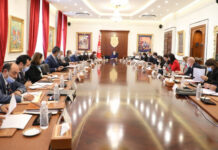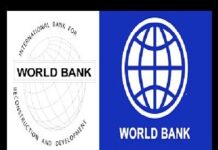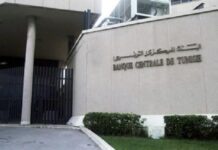During a meeting at the headquarters of the Tamimi Foundation for Research and Information Saturday, September 25, 2021, the international researcher and former minister, Dr. Ahmed Friaa, expressed his astonishment at those who call on the President of the Republic, Kais Saied to appoint a prime minister specialized in the field of economics, saying, “Even if you bring someone who won the Nobel Prize for economics, nothing will change if the political situation does not change.”
Ahmed Friaa indicated that the most important element to win future competition is the human element and human intelligence, considering that Tunisia can win this by taking deep reforms in the field of education, scientific research, innovation and the economy, especially since Tunisia is rich in the most important future wealth, which is the wealth of intelligence, calling for an end to the migration drain that affected about 94 A thousand Tunisian officials in several fields, including the judiciary, doctors and engineers, and attracting talents from abroad to serve Tunisia.
Develop a management plan for renewable energies and growth-oriented tourism
The international researcher and Minister of Interior during the era of Ben Ali stressed the importance of the state taking solutions at the medium and long levels and raising the challenge of progress in them at the regional and international levels, as India and others did, pointing out that one of the most important areas that can achieve progress for Tunisia are renewable energies and their applications especially with the availability of great Tunisian experiences in the field dating back to the seventies and eighties.
He explained that the solution is to develop a managerial plan for renewable energies according to the stock and specialization of each region, including wind, waste, ripples, hot water and the sun that shines on the country throughout the year, in addition to the need to develop a managerial plan for seawater desalination plants on the Tunisian coast, which will create thousands of jobs in industry and technology, stressing the need to pay attention to the development of a program for targeted tourism, especially cultural, which has a great future in Tunisia and may become an important locomotive of development, in addition to health services competencies, for which Tunisia is famous for, and reforming the sectors of education, higher education and agriculture, especially biological, with significant profitability, which has become of importance in the largest world cities.
We lose 60% of electric and water energy due to the lack of follow-up and maintenance
Ahmed Friaa reviewed the most prominent reforms that must be carried out in the short term to save Tunisia’s economy, including those related to our water reserves, noting that the erosion of infrastructure and water canals due to the lack of maintenance is causing wasting 30% of our water reserves, which are suffering from scarcity today, adding that the same applies to the field of electricity. In this field, Tunisia loses about 30% of its energy due to negligence and acceptance of importing 50% of its energy from abroad.
Speaking about the field of roads, Friaa highlighted that although they are supposed to be restructured every 7 years, there are roads that have not been rehabilitated for 30 years, and therefore we see potholes everywhere, which cost citizens losses in their cars and the state’s import of spare parts, stressing that short-term repairing the necessities of life such as energy, water and infrastructure are enough to reduce the frustration experienced by Tunisians, especially since the problem is not related to the provision of financing, which is confirmed by the World Bank. Rather, the problem is related to the existence of the political will for this reform.
6 thousand km of fiberoptics’ and 4 digital TV stations are unused!
Ahmed Friaa also revealed that Tunisia has 6,000 km of ‘optic fiber’ underground. Had it been exploited, we would have avoided frequent internet outages.
He pointed out that Tunisia has had 4 digital stations for Tunisian television since 1998, which have not been used in Mount Boukarnine and are not being exploited. Therefore, we talk every time about a break in broadcasting on national television. Friaa expressed his regret over the lack of investment in these capabilities and the lack of follow-up. Therefore, the interruptions continue for the citizens.
He explained that Tunisia possesses the competencies to facilitate these capabilities, but they are not used while we find the state opening several digital institutions abroad.











